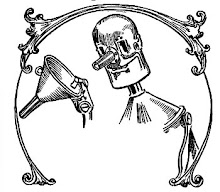It also darkens your world view quite a bit. As an introvert who suffers from social fatigue, I have spent most of my life in self-reflection. I have also spent my entire life battling the fugue of depression that is always lurking in the periphery of my mind. Thus my world view was darkened from the outset, but the pain compounded it more than I thought possible. In depression, you can stave it off occasionally. Through fun, distraction, success, or relaxation the depression could be kept at bay for sometimes months at a time. The same cannot be said of the pain. It never goes away entirely. Medicines give temporary easing, ice can reduce swelling, and exercise can help strengthen the muscles. But it is still there. The best thing I can hope for when I go to bed is that the next morning might hurt slightly less.
I think you can see where this is all going.
When I, or someone like me, looks out at the world it is not a pretty picture. Some would call the situation 'hopeless'. But that would disregard my next point, which is that pain can put things into perspective. It fundamentally changes the world you live in. You begin to forget small things, to be able to communicate certain needs and wants, and it can utterly consume your life if you are not paying attention.
The world becomes murky, and you begin to despair. Everything dims, and hope becomes a poisoned trap that feeds into the dark fog that gathers at the edges of your perception. As the shadows close in, the mind gets lost when it tries to look inside yourself, and no one can even tell what is happening to you. This is compounded by the opiates which disassociate you from reality and can distance you from situations that need your utmost attention and feeds the apathy that accompanies depression.
So when you are talking to someone who suffers from pain or depression, remember this: There is a darkness inside the person you care about that is deep and terrible. It cannot be forgotten about lest you find yourself blindsided by the tumultuous hell brewing just below the surface of the person you are trying to talk to. It can hurt both sides and the last thing the person feeling the pain or depression is to inflict those feelings on the people they love.
The other reason not to forgot what these feelings are doing to your loved ones is that it can be hard to see through the gloom that sits over their minds. I cannot emphasize enough how hard it can be to see through those clouds. How easy it can be to lose yourself in the haze is as hard to make other people understand as the pain and depression themselves. So I will close with a quote that helps put it in perspective
"What does a scanner see? Into the head? Down into the heart? Does it see into me, into us? Clearly or darkly? I hope it sees clearly, because I can't any longer see into myself. I see only murk. I hope for everyone's sake the scanners do better. Because if the scanner sees only darkly, the way I do, then I'm cursed and cursed again. I'll only wind up dead this way, knowing very little, and getting that little fragment wrong too." -Bob Arctor A Scanner Darkly by Philip K. Dick.




No comments:
Post a Comment